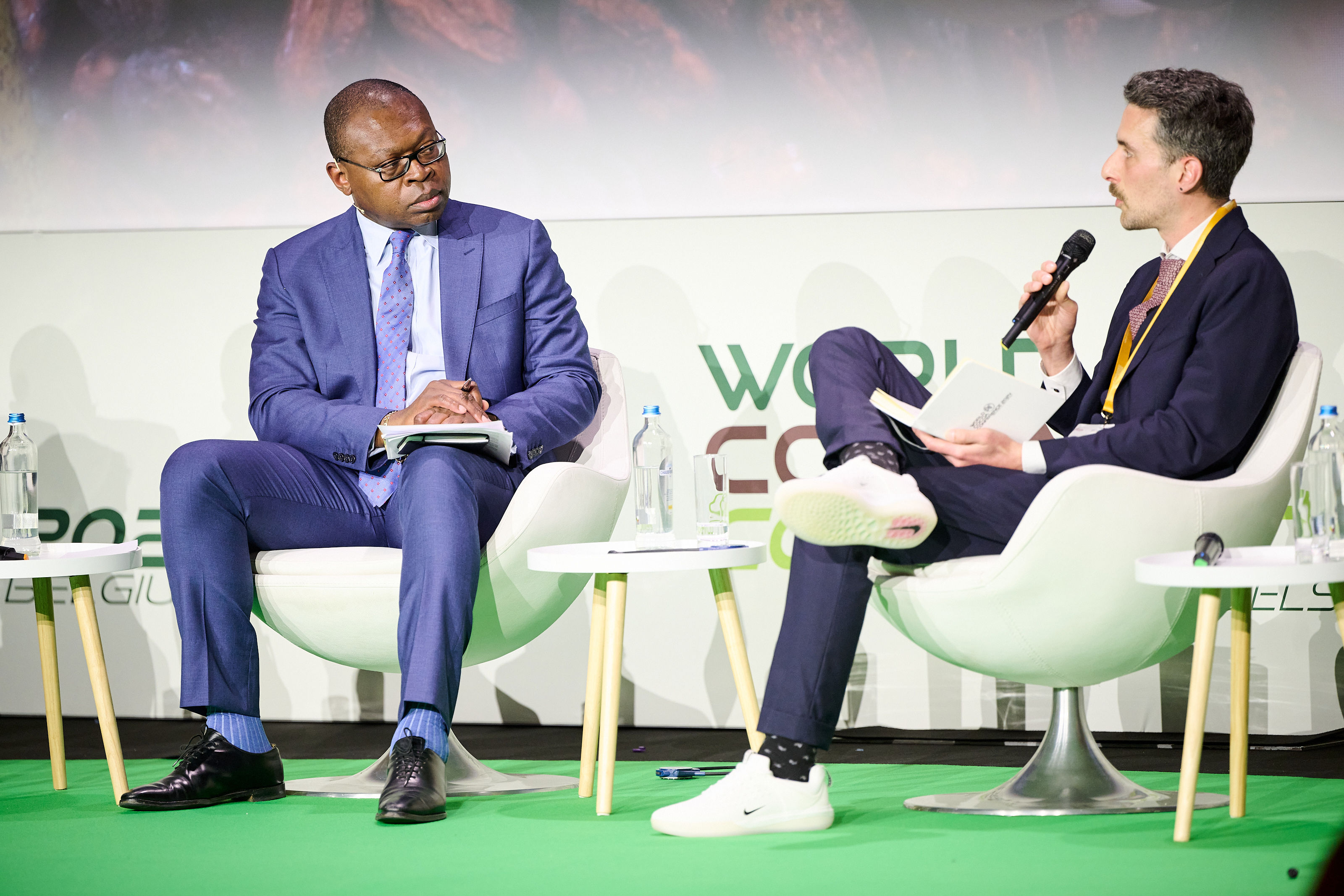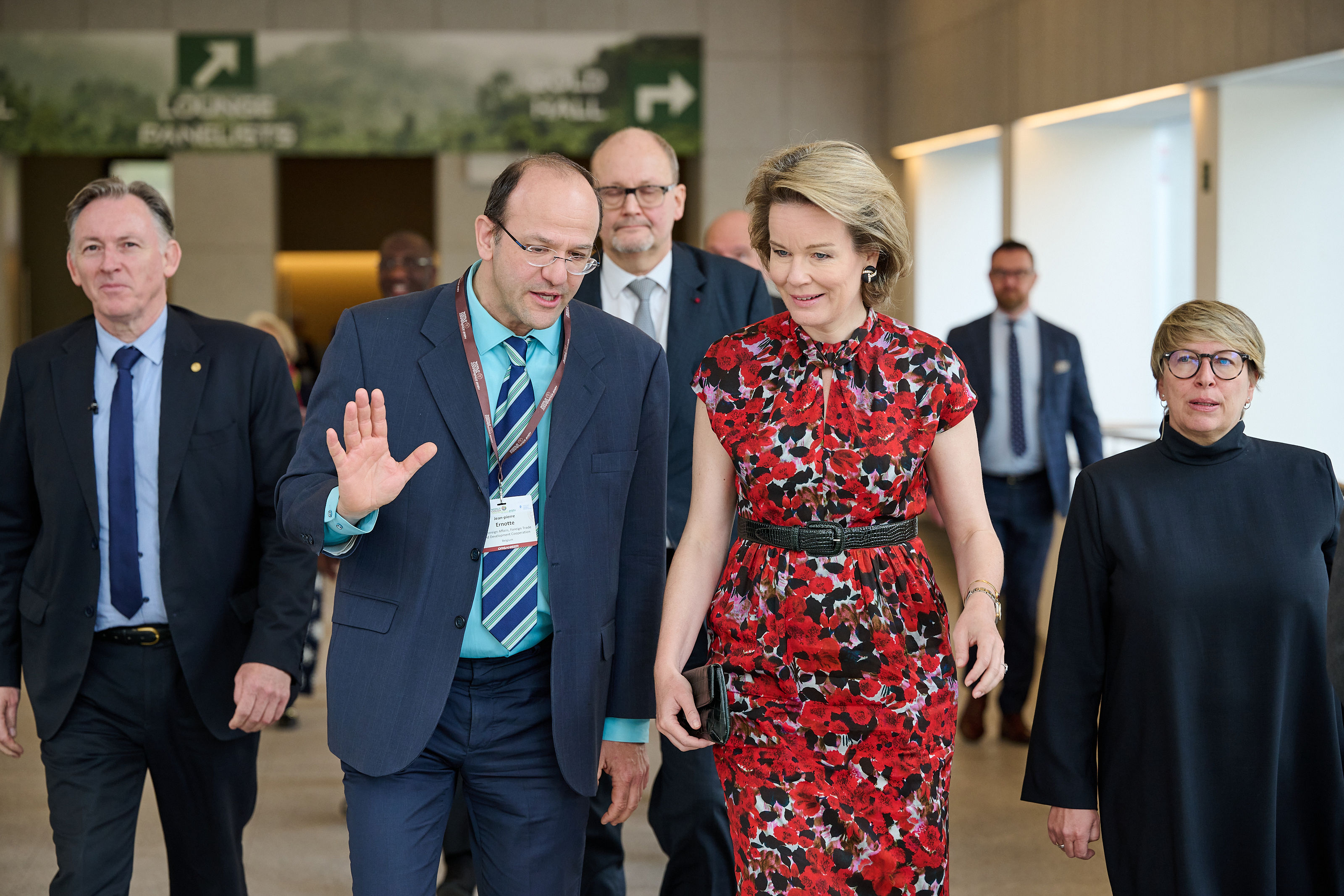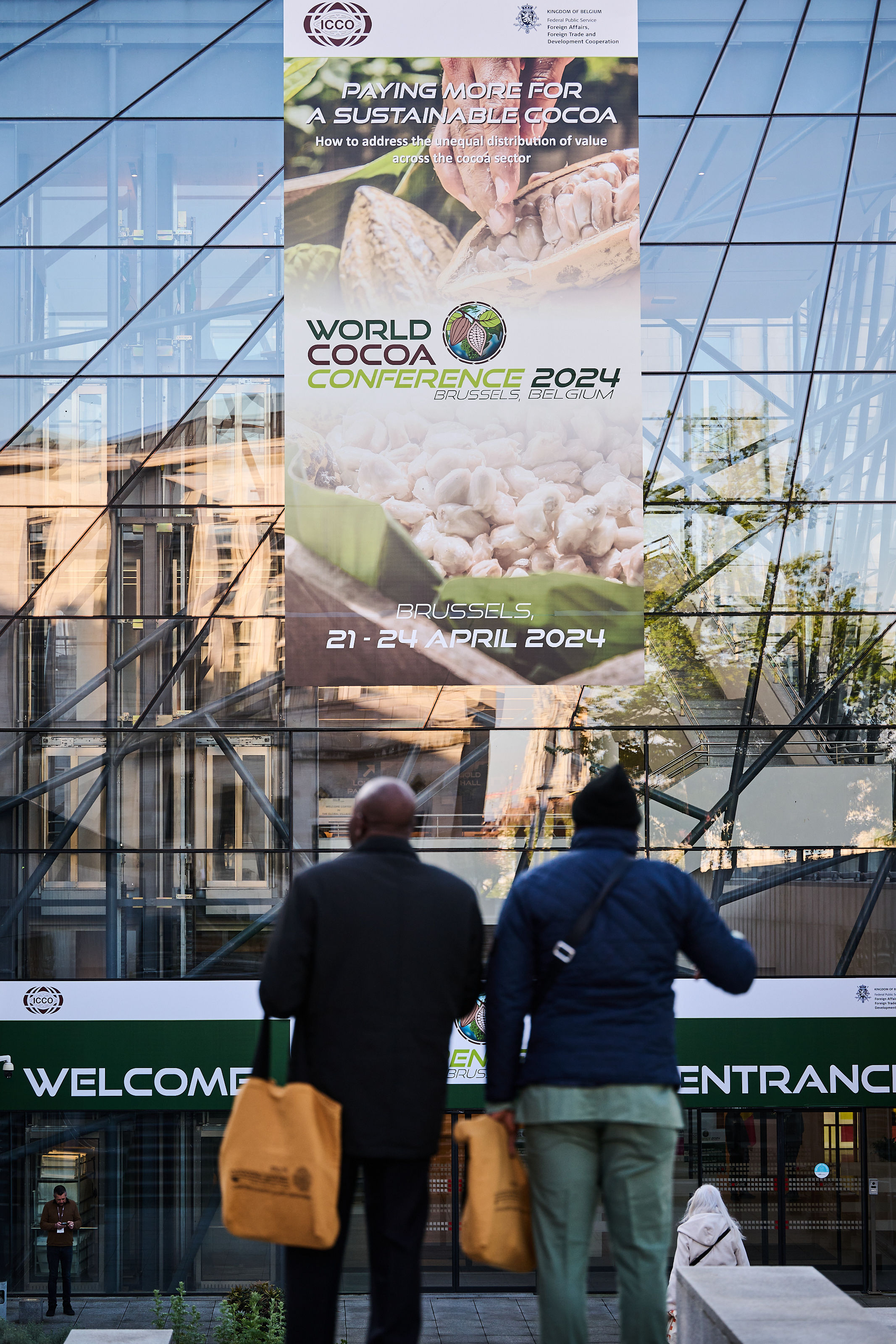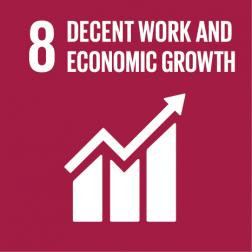Both Charles Snoeck, Programme Manager at Beyond Chocolate, the Belgian initiative for sustainable chocolate, and Jean-Pierre Ernotte, Adviser for International Governance at the FPS Foreign Affairs, have therefore had busy months. Both, however, look back on the WCC with a positive feeling.
"We can be proud as a country that we were able to host the World Cocoa World Cup," said Charles Snoeck. "It illustrates that Belgium is playing a leading role in this area."
What were the central themes discussed at the WCC?
"A living income was the focus of this conference," said Charles Snoeck. "An important new step was taken on the path which we have been following since 2018. In that year, the fourth WCC was organised, during which the Berlin Declaration was adopted. That statement put forward that cocoa, and therefore chocolate, could not possibly be sustainable if farmers were living in poverty, and that a low price stood in the way of a sustainable solution."
"The fifth conference in Brussels continued on this momentum with the central slogan "Paying more for sustainable cocoa". A major virtue of this WCC was the strong commitment to making transparent the challenges facing the sector and the specific ways in which these challenges can be addressed and the results monitored. After all, we want to avoid sustainability remaining too vague, or too non-committal a concept," Charles Snoeck informed us.
"The very fact that the WCC took place was a celebration, a culmination of the proactive and transparent attitude which the industry is taking in the face of multiple challenges," Charles Snoeck and Jean-Pierre Ernotte told us. The definition of what sustainable means was further anchored to ensuring a liveable income. Currently, 90% of small-scale cocoa farmers still do not have access to a living income, often not even half that amount. That we are monitoring, acknowledging and subsequently communicating this transparently at the political level - because the ICCO is primarily a forum for policymakers - is a great achievement. With this vision and attitude, the cocoa sector is ahead of other agricultural sectors such as coffee or palm oil, where the same human rights and climate challenges arise. Consider, for example, the issue of child labour, or deforestation".
"In addition to acknowledging the challenges, best-practices were shared as regards how best to confront them. Monitoring a living wage is a topic on which Belgium has been at the forefront in recent years. Various models which can guarantee a liveable income were therefore discussed at the conference. One example is the "Open chain" approach, initiated by the Dutch brand Tony's Chocolonely, in which farmers receive benchmark prices which guarantee a living income. This not only cuts their costs but also allows them to make a profit, and it also allows them to make investments. The Belgian retail chain Colruyt has, with financial support from Beyond chocolate, also tested a model which will guarantee a living income on a smaller scale and presented its results. Their approach has proved a success, leading them to scale it up further in the coming years. Although Belgium and the European Union are major buyers of cocoa, it is obviously a global market. That is why it was enlightening at the WCC also to share examples such as the income accelerator programme of the multinational Nestlé, or an American initiative of the large local distributor Hershey's."
"The above elements relate to how we, as consuming countries, can make a difference, but initiatives and analysis from producing countries were also eagerly shared during the WCC," Charles Snoeck stressed. "For instance, the first public panel of the WCC was moderated by the Executive Secretary of the Cote D'Ivoire-Ghana Cocoa Initiative, which is committed to establishing an economic pact for sustainable cocoa, where the income of farmers is a key element.

The conference ended with the Brussels Declaration. What were the key elements?
"What I find remarkable, when looking back on the process, is that we managed to keep the need to obtain a liveable income for small producers as a central theme, while combining this central objective with a whole range of other concerns which are also important for small producers," Jean-Pierre Ernotte pointed out. "Particular attention is paid to the right to social protection, to microcredit, to the role of women in the cocoa economy, to transparency in the pricing system, to environmental costs, to the attractiveness of the cocoa sector to young people... and this, of course, without forgetting the resources required to abolish child labour and to achieve a goal of zero deforestation.
At one point, we feared within the editorial committee that there were too many of these additional concerns, but as we worked, hand in hand with the producing countries, we clearly understood that these questions are part of "a whole and these are mutually reinforcing."
"The other positive point, which Belgium insisted on, Jean-Pierre Ernotte further explains, is the need for monitoring and the ICCO has committed to this point in the text itself (this is the last paragraph)."

How can we build on the WCC and the Brussels Declaration?
"A momentum has been created with the WCC, indeed it is now important to build on this," Charles Snoeck and Jean-Pierre Ernotte confirmed.
"The interesting thing about the WCC is that different parties are brought together, each explaining their challenges and that rapprochement can be found. This is reflected in the Brussels Declaration, which recognises the responsibilities of the producing countries, consuming countries and the private sector.
"Among producer countries, the leadership of Côte d'Ivoire and Ghana can serve as inspiration. Their initiative will make it easier to trace the origin of the cocoa. More efficient tracking removes the risks for investors and traders from the countries importing cocoa."
"The consuming countries, in turn, should then look at how they can further support the producing countries," Charles Snoeck said. "The chocolate sector creates many jobs in Belgium, provides government revenues and a strong image. How can some of these profits flow back? To cocoa farmers, but equally to producing governments so that they can invest in productivity, traceability or making cooperatives professional. I am thinking, for example, of support from Enabel, the Belgian Development Agency."
"The private sector must also stay involved. Beyond Chocolate presented a Joint Statement on Procurement at the WCC together with platforms from Germany, France, Switzerland and the Netherlands. The vision is that sustainable trade should not be a point of competition between private companies, but a pre-competitive condition for all the parties involved. To do so, they may then count on governments to provide a level playing field."
"In order to bring all these challenges to fruition, a long-term vision is central," Charles Snoeck and Jean-Pierre Ernotte concluded. In that context, the WCC, with the Brussels Declaration as its crowning achievement, was an excellent springboard for moving forward around a legislative and policy framework which can address all the needs.




